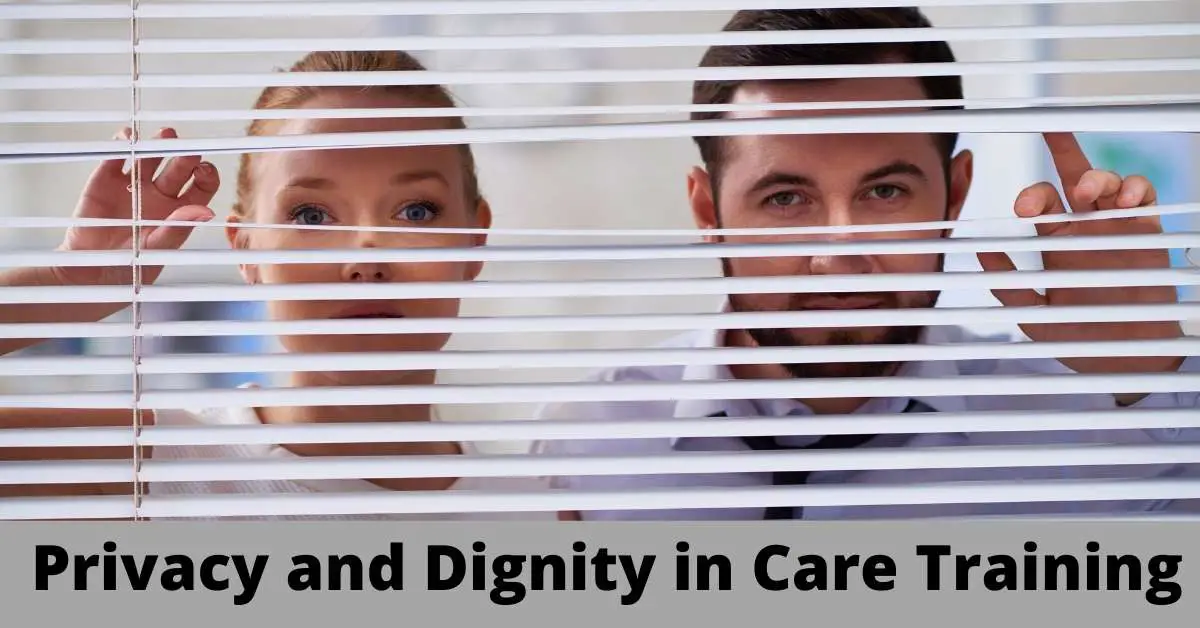Definition
This Privacy and Dignity in Care training focuses on the Care Certificate and aims to educate those working in Care on how both privacy and dignity can be respected and protected within a care setting.
Privacy in practice can mean making sure that a confidentiality policy is in place and followed by all staff; making issues of privacy and dignity a fundamental part of staff induction and training; and making sure that only those who need information to carry out their work have access to people’s personal records or financial information.
The term ‘dignity’ has always been hard to define. A good place to start by looking at our general human rights: ‘Human rights are universal – they belong to everyone. They guarantee the fundamental rights of each individua. They guarantee the fundamental rights of each individual.
Nursing Revalidation provides best privacy and dignity course.
Importance of dignity and privacy within healthcare sector
Maintaining dignity necessitates the right to privacy. Privacy is an important aspect of dignity in social care for each individual. It ensures that the person is aware that no one will enter their personal space, rooms, or any of their belongings without their explicit permission.
Respecting dignity and privacy are critical for developing an effective relationship between healthcare professionals and patients. It is also essential for the patient’s peace of mind. In contrast, if the patients’ dignity is not respected, many negative consequences will follow.
Failure to respect patients’ privacy (as a measure of dignity) may cause patients to conceal some aspects of their medical history or refuse medical examination, but it may also increase their level of anxiety and stress, leading to some aggressive and unacceptable behaviors. According to some patient-rights studies, patients are dissatisfied with healthcare professionals’ observance of their rights to privacy, confidentiality, choice, and control. Patients believed that they were not usually involved in care decisions. They were also dissatisfied with healthcare professionals in terms of observing patients’ respect and decency, forms of addressing during physical examinations, and personal hygiene activities. This is a worldwide problem.
How to keep good relationships with service users?
Building rapport is essential when working in any health and social care role, including mental health, learning disabilities, neutralizabilities, and older people’s services. Involving service users in the development and evaluation of support needs is critical to well-being and can help establish the delivery of additional concepts that would not have been considered otherwise. There are following ways to keep relationship with service users:
- Communicate Effectively and Consistently
- Be Positive
- Treat Your Client as an Individual
- Share Knowledge
- Be Open-Minded
- Exceed Expectations
- Understand Your Client’s Goals
- Speak Your Client’s Language
- Stay Humble
- Use Project Delivery Tools
- Develop Appreciation
Common issues
Managing their time. Caregivers often find they have less time for themselves and other family members.
- Emotional and physical stress.
- Lack of privacy.
- Financial strain.
- Sleep deprivation.
- Being afraid to ask for help.
- Depression and isolation.
Privacy and Dignity course that you should learn
Nursing Revalidation provides best privacy and dignity course.
The course will start by defining dignity and privacy within the healthcare sector, and will explain how the two are quite often linked. It will then go on to give you a range of useful professional tips about setting up the right working relationship with your service users, and discuss some of the issues that can arise when dignity and privacy are not respected.
The bottom line
Maintaining dignity necessitates the right to privacy. Privacy is an important aspect of dignity in social care for each individual. It ensures that the person is aware that no one will enter their personal space, rooms, or any of their belongings without their explicit permission. Privacy – the right to keep important aspects of oneself private – is essential to dignified care. And courtesy – the everyday practice of politeness – backs it up. Of course, it is appropriate to provide support, practical assistance, opportunities, and advice to people who use adult social services.


